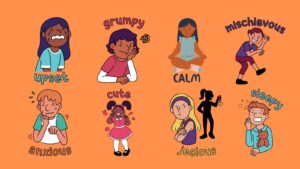Tricks and Tips to Cut Down on Your Preparation Time
Time is a precious resource. The demands on a teacher’s time come from many places – administrative duties, ancillary responsibilities like supervising club activities and extra student tutoring, to name just a few.
In addition, teachers need to plan their lessons. When I was a young teacher, I often spent hours planning my lessons, adding extra games and flourishes that made my lessons special. As I’ve developed as a teacher, I’ve become convinced that while good preparation is still necessary, it’s also important to save time when possible by using tricks to cut down on preparation.
Get to Know Your Materials
A great deal of preparation time, especially with young teachers, is spent reinventing resources that may already exist in other forms. Many of the textbook series I have used have come equipped with a number of additional resources and game activities. In some cases, these resources were so abundant that I rarely needed to prepare anything else. Before you make a game for your classroom, I suggest you take a look at the instructor’s manual, the textbook companion website, the CD-ROM, and other materials that have come with the book. I think you’ll be surprised how many supplementary resources are available to you.
Share with Other Teachers
In addition, many of the institutions I have worked for had accumulated teaching materials left by other instructors. This has included a shareable digital resource folder with grammar PowerPoints, digital games, flashcards, and other materials. The ability to pool and share teaching materials is so important that when I have worked for an institution that doesn’t have a system for sharing, I have created one. (This can easily be done using, for example, a Dropbox folder.)
Reuse and Recycle
Instructors should also be mindful of when they can reuse and recycle materials. In some cases, PowerPoint games that I have made for one class took only a few extra minutes of editing to be useful for another class. For example, a PowerPoint quiz game I made on the topic of Valentine’s Day was edited a month later for a special conversation class on the topic of romance. In other cases, a worksheet that was the final activity for a lower-level class served as the warm-up activity for a higher-level class.
Include Students in Preparation
Teachers can also include students in their preparation. In many cases, this preparation has value to students as a learning activity. For example, when I was making a review board game for several units, I had students write some of the game cards based on conversation questions practiced in the units. I then corrected these game cards so they could be used during the review game. This gave the students practice with their writing and helped them think about what they needed to review.
Develop Abilities for Inspired Improvisation
One of my colleagues told me a while ago that over-planning a lesson kills spontaneity. This is a controversial opinion. After all, planning is supposed to make your lessons better, not worse. But, in his view, planning could be like a crutch — it’s good when you need it, but it can lead to dependence. In my own teaching, I’ve found that planning often leads to emotional attachment and an unwillingness to innovate. The more I plan something, the more I feel like I have to use the activity in class, even when the natural flow of the class is going in another direction.
My own opinion has always been that while planning can be good, one should always develop the capability for improvisation and, in order to do this, it helps to on occasion walk into the classroom with broad outlines and ideas rather than fixed activities.
If you are new to the world of improvisation, then I suggest you begin with one easy activity. The activity is amenable to almost any level or class size.
First, bring a paperclip to class.
Next, write on the board: How many ways can you use a paperclip?
Where you go from there is up to you.
Other Tricks?
Are there any other tricks that you know to cut down on teacher preparation time? If there are, I’d love to hear them. Comment below!





One Response
Ahmad Zaytoun
I like those tips, and really enjoyed the post. Thank you for sharing those tips :)
06/05/2017